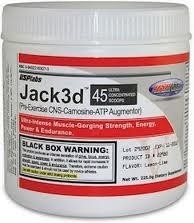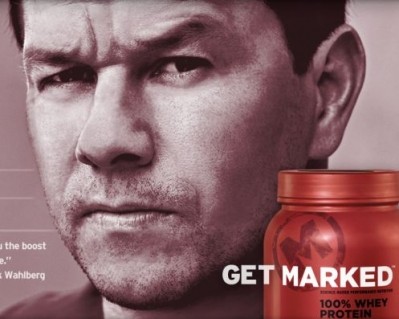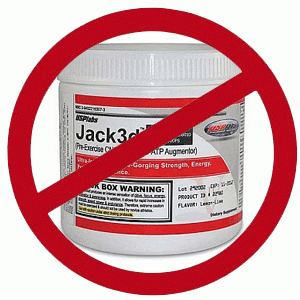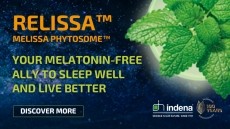GNC: FDA action on DMAA is ‘factually and legally unfounded’
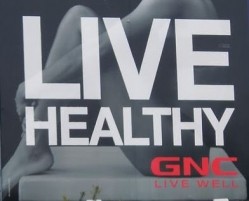
GNC spokesman Greg Miller was speaking to NutraIngredients-USA after the FDA sent warning letters to 10 manufacturers and distributors of supplements containing DMAA informing them that failure to immediately cease distribution of these products could result in enforcement action “without further notice”.
According to the FDA, synthetically produced DMAA is "not a dietary ingredient and is not, therefore, eligible to be used as an active ingredient in dietary supplements".
The agency also raised serious safety concerns about the stimulant, which it claimed caused increases in blood pressure which could in turn "increase the work of the heart such that it could precipitate a cardiovascular event".
There is no basis for this FDA action
But Miller said: “We are completely opposed to this unilateral, factually and legally unfounded action by the FDA and we believe the large consumer base that has safely used products containing DMAA in millions of doses will also oppose it.”
He added: “The dietary supplement industry is united on this issue and is adamantly opposed to the FDA's position on the use of this ingredient, of which millions of doses have been sold, as well as its interpretation of DSHEA. There is no basis for this FDA action.”
GNC “totally disagrees with FDA's interpretation of DSHEA (1994 Dietary Supplement Health and Education Act)", he added.
"The approach FDA is taking here is in complete contradiction of the plain language of DSHEA, which protects the rights of consumers to use dietary supplement products.”
Unaware of any scientific or medical evidence which calls the safety of DMAA into question
Moreover, GNC was “unaware of any scientific or medical evidence which calls the safety of DMAA into question”, added Miller.
“The FDA has not produced any evidence of safety issues with this ingredient. To the contrary, GNC is aware of a number of published, peer reviewed studies that show that DMAA is perfectly safe when taken as directed.
“Consumer safety is paramount to GNC and, based upon the contractual representations and warranties made by its third party vendors, GNC defends the safety of all third party products sold by it. GNC would not sell any product about which it had safety concerns.”
Military probe
GNC, which says it has sold 440 million doses of products containing DMAA since 2007 with only one serious adverse event report, recently agreed to recall 18 products containing DMAA from GNC stores on US army and air force bases while the Department of Defense conducts a probe into its safety.
The military probe followed the deaths of two soldiers found to have it in their blood. However, the DoD has stressed that “no link between DMAA and the medical conditions reported by military medical providers has been validated scientifically by us."
It has also acknowledged that all of the medical conditions claimed by some to be associated it DMAA “have multiple causes”, adding that it was "too soon to tell if there is a relationship with DMAA.”
At the time of the voluntary recall, GNC told us: “Even though GNC believes DMAA is safe for consumer use, it has complied fully with the Army’s request… as it is contractually obligated to do.
“All of these products are third party products for which their manufacturers have represented to us their safety. There is also no scientific/medical evidence that demonstrates any causal link between DMAA and any adverse medical condition, let alone a death."
Lawsuits
GNC is one of several firms accused of misleading consumers over the source, regulatory status and safety of DMAA in a class action lawsuit.
In a civil action filed in California in February against GNC, Cellucor Sports Nutrition, Woodbolt Distribution, Woodbolt Management and Woodbolt International, plaintiff Lynette Bates argues that the defendants misled shoppers by selling Cellucor's C-4 Extreme pre-workout supplement containing the “synthetic and dangerous stimulant DMAA”.
The complaint followed actions filed against BPI Sports and USP Labs for selling supplements containing DMAA alleged to be in a “synthetic form that is both illegal and dangerous”.
Where does DMAA come from?
There is an ongoing debate about whether DMAA (also known as methylhexaneamine or MHA), which was first manufactured synthetically by drug giant Eli Lily in the 1940s, is in fact a constituent of geranium, with the consensus growing that it is not.
Health Canada last year issued a statement arguing that DMAA is not found naturally in geranium (as supplement makers using it claim) and affirming that any products containing it require a drug authorization.
There is only one study that is repeatedly referenced to show that DMAA is a naturally occurring constituent of geranium oil (Ping, Z.; Jun, Q. & Qing, L. (1996), ‘A Study on the Chemical Constituents of Geranium Oil, Journal of Guizhou Institute of Technology 25 (1): 82–85) - which analytical testing experts contacted by NutraIngredients-USA say is "not scientifically defensible".
However, USPLabs – which markets the OxyELITE and Jack3d supplements targeted by the FDA - says it has new data from “two independent and highly respected analytical chemistry laboratories, utilizing advanced validated analytical instrumentation and methods” that “further demonstrate the occurrence of DMAA in the geranium plant, Pelargonium graveolens, and its edible oil”.
The other firms targeted by the FDA either declined to comment, were unavailable for comment or told us they were still formulating their responses in discussion with legal counsel.
Click here to get more reaction to the FDA action.
Click here to read the NutraIngredients-USA timeline on the DMAA saga.
